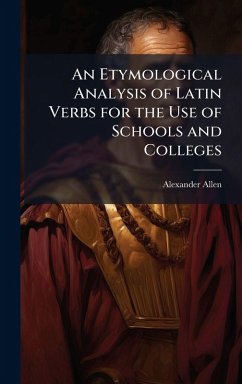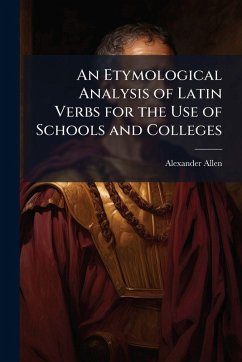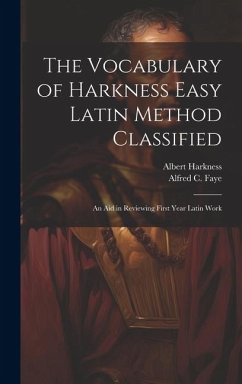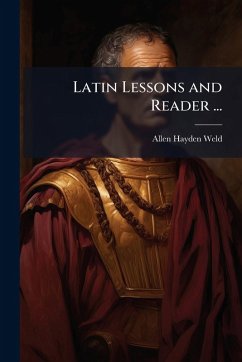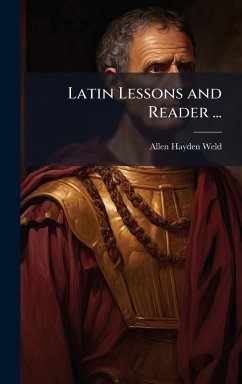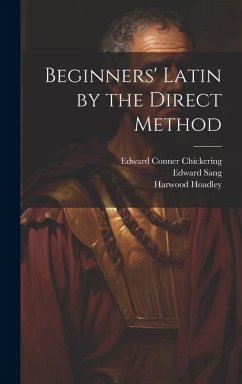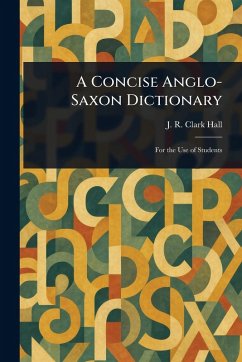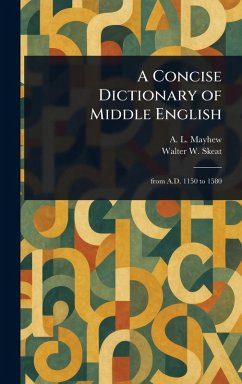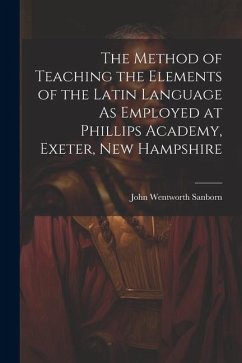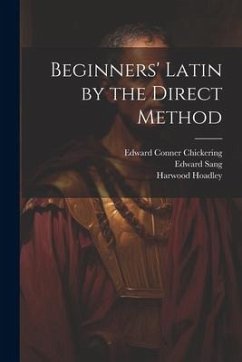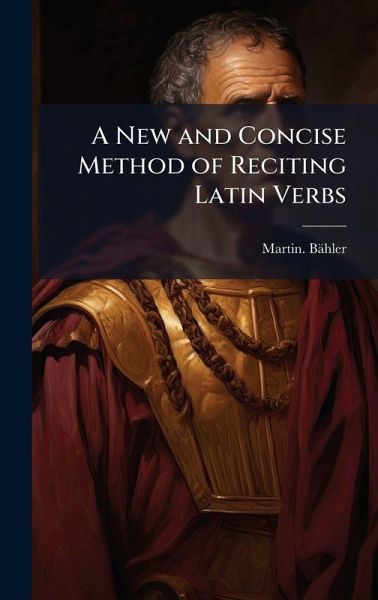
A New and Concise Method of Reciting Latin Verbs
Versandkostenfrei!
Versandfertig in über 4 Wochen
25,99 €
inkl. MwSt.

PAYBACK Punkte
13 °P sammeln!
"A New and Concise Method of Reciting Latin Verbs", by Martin Bähler, offers a structured approach to mastering Latin verb conjugations. Originally published in 1875, this work provides students with a systematic method for learning and reciting Latin verbs, crucial for understanding and translating classical texts. This concise guide is designed to aid both instructors and students in efficiently grasping the complexities of Latin grammar. Its enduring value lies in its clear and methodical presentation, making it a valuable resource for anyone studying Latin. This work has been selected by ...
"A New and Concise Method of Reciting Latin Verbs", by Martin Bähler, offers a structured approach to mastering Latin verb conjugations. Originally published in 1875, this work provides students with a systematic method for learning and reciting Latin verbs, crucial for understanding and translating classical texts. This concise guide is designed to aid both instructors and students in efficiently grasping the complexities of Latin grammar. Its enduring value lies in its clear and methodical presentation, making it a valuable resource for anyone studying Latin. This work has been selected by scholars as being culturally important, and is part of the knowledge base of civilization as we know it. This work was reproduced from the original artifact, and remains as true to the original work as possible. Therefore, you will see the original copyright references, library stamps (as most of these works have been housed in our most important libraries around the world), and other notations in the work. This work is in the public domain in the United States of America, and possibly other nations. Within the United States, you may freely copy and distribute this work, as no entity (individual or corporate) has a copyright on the body of the work. As a reproduction of a historical artifact, this work may contain missing or blurred pages, poor pictures, errant marks, etc. Scholars believe, and we concur, that this work is important enough to be preserved, reproduced, and made generally available to the public. We appreciate your support of the preservation process, and thank you for being an important part of keeping this knowledge alive and relevant.



